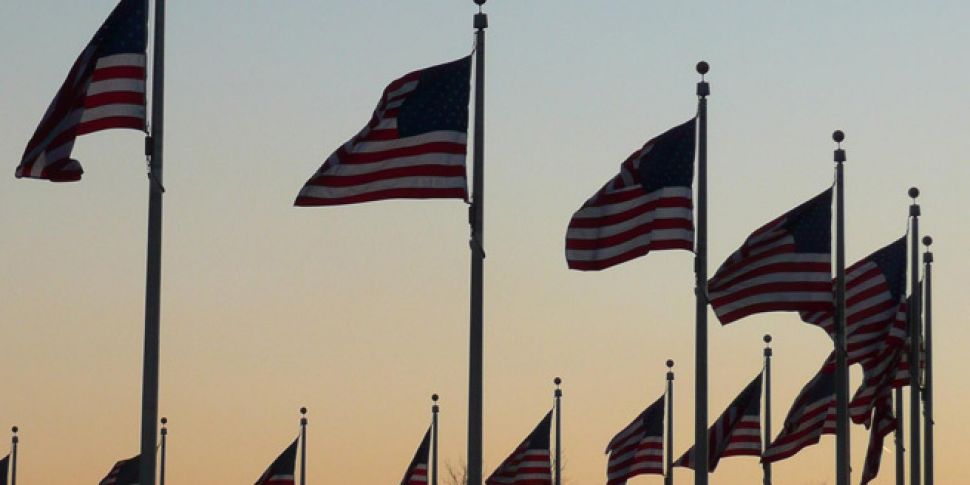They are little more than large pieces of material usually arranged in very simple and often boring patterns and yet flags can cause so much trouble.
Earlier this month a woman in Amsterdam hung an Israeli flag from her balcony. She was beaten up by three men who had taken such offence that they went to the trouble of breaking into her apartment and attacking her.
The assault took place in the wake, but it should be said not as a result, of a decision taken by the Dutch authorities to ban the black flag of the Islamic State within the country.
On the eve of a large pro-Palestinian protest in Amsterdam, a spokesperson for Dutch police stated that “Nazi symbols, Hitler salutes and burning flags” would not be tolerated and that the same applied “to the Isis flag”.
While community spokespersons rightfully condemned the attack on the Jewish woman, there is something about the different reactions to the two flags that should make us just a little uneasy.
The woman's display of the Israeli flag was undoubtedly meant in her mind as a show of solidarity but it seems obvious that it was also meant to incite; the same thing that the now banned Islamic State flag would allegedly or supposedly do if allowed at rallies. Will she be fined for her part in incitement to violence, albeit the violence was perpetrated on her or should the flying of flags only be banned on one side of an argument? Surely either all flags should be banned or none at all.
In general, there is a certain absence of logic to banning flags anyway, in that it is counter-productive because it only goes to prove to people who feel repressed that they are repressed. It gives would be fundamentalists of whatever creed, colour or political persuasion evidence of their perceived persecution and justifies their existence.
“They won't even let us fly our flag!” comes the refrain and suddenly the former mad man makes sense because what he is saying is simply true. And if you give him a little bit of truth what stops people believing the rest of what comes out his mouth.
In the United States, flag bearing and waving are protected under the First Amendment which protects free expression and free speech. The idea there seems quite simple. Let whatever clown who has a point make his point with all the hoo-ha and razzmatazz he likes. Let him carry his flags and spout his bile and then tear him apart in an argument. It's called politics and it seems to work pretty well. Nazi flags, for example, are permitted in the United States and though Louis Theroux would have you believe otherwise the numbers of neo-Nazis in the United States is miniscule. The great thing about freedom of speech is that it not only allows you to say what you like but it allows you to say what you like ad nauseam; in other words to the point where the monotony of your rant makes people lose interest. Fundamentalists are essentially the drunks at the world dinner table; at a certain point they simply become boring.
Just last week the Californian State Assembly passed legislation which will ban the state (and not, it should be noted, individuals) from selling anything emblazoned with the battle-flag of the Confederacy. The bill was introduced by Democratic Assemblyman for Compton, Isadore Hall and filed after his mother saw a replica of the controversial flag being sold at the State Capitol in Sacramento.
“Its public display,” said Hall, “is designed to instil fear, intimidation and a direct threat of violence toward others.”
That might be true for some but for others the flag represents a separate ‘southerness’ and is an expression of a different culture which, though Hollywood would have you think otherwise, has little to do with the Ku Klux Klan or racism.
The Confederate flag has been used by organisations that are undoubtedly evil but getting rid of it all together, which would be impossible under the constitution anyway, would negate the positive side of what it represents; even if that positive side, namely a fiercely independent spirit, is viewed sometimes with suspicion.
In America the constitution encourages, if not an open contempt, at least a healthy right to question government and while that might lead to eye-popping demonstrations involving Nazi-flags and other tasteless emblems it does mean that protest is open.
Politics in Europe is becoming lazy. France is banning marches in Paris. The Dutch are banning flags. What next?
Over 500 years ago Machiavelli put it simply when he observed in The Prince that “men ought either to be well treated or crushed”. European countries such as the Netherlands are unlikely to stump for the latter, not to the extent that the early 16th century political observer meant it anyway, so they must stick to the ‘good treatment’ or absolute democracy that makes most of Europe such a wonderful place to be. That involves freedom of expression being maintained and being maintained absolutely. That might mean having to look at symbols and gestures and having to listen to speeches (eh…Geert Wilders anyone?) that we do not like but that is the price of freedom and it is now, at a time when our tolerance for it is being tested to the limit, that we must make sure it is maintained. Otherwise we risk becoming as intolerant as the people we abhor for their intolerance and worse, legitimising their arguments.
You can follow Jonathan on Twitter here: @deburcabutler.









